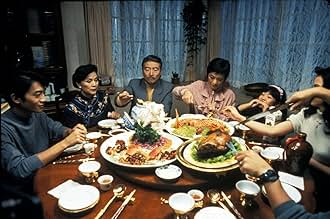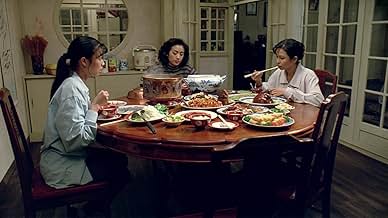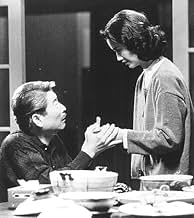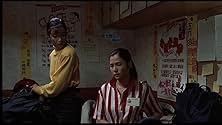Ang Lee has turned what might have been merely an extended Taiwanese soap opera into a wise and warm exploration of family relationships, love and friendship, against the backdrop of a traditional society adapting to the modern world. Fascinating in themselves, the food preparation sequences serve as a metaphor for the skill required to transform bare existence into a rich life (and perhaps also as a metaphor for film making, where similar care and deftness are required).
The film focuses on the strained relations between master chef Chu (Sihung Lung) and his three unmarried daughters, and on the relationships of all four in love and at work. These relationships run the gamut from first love to love the second time around; from those based almost solely on sex to those based on none. (Some of the most touching scenes are those between Chu and his older colleague Wen (Jui Wang.))
Via the various workplaces Lee subtly shows us the changing face of Taiwanese society. Despite her father's profession, and seemingly with his approval, his youngest daughter works in a fast-food outlet; the eldest has converted to Christianity, and teaches science to boys, who treat her with a mixture of traditional deference and western-style insolence; the middle daughter is a successful airline executive, but only because time-honoured attitudes debarred her, as a woman, from following in her father's footsteps as a cook.
Unlike the classic Hollywood film, there is little out-and-out conflict in this movie, which seems to be based more on the Chinese philosophical concept of Yin and Yang, mutually dependent opposites. But whatever its underlying cinematic rationale, it is a masterpiece.





















